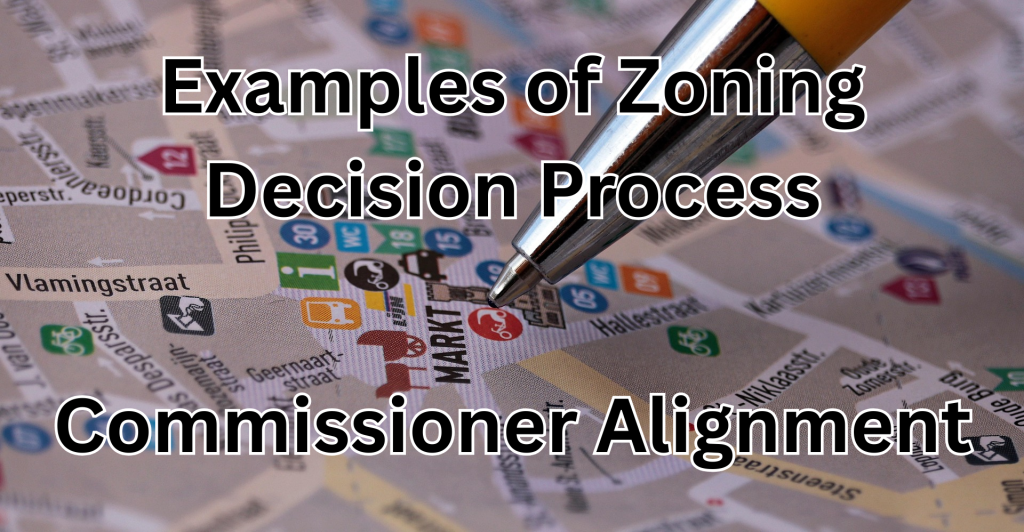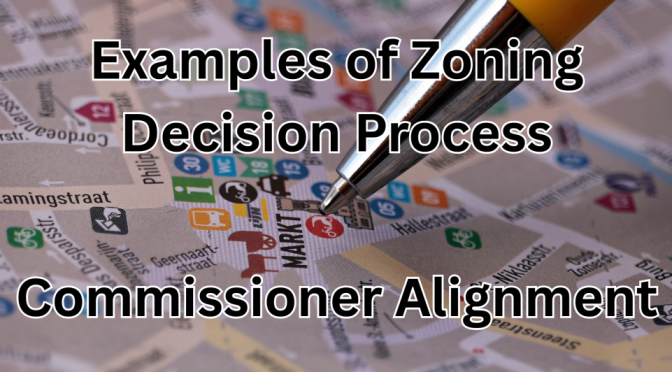On April 23rd, the Fort Scott Planning Commission met to hear from Garrett Knight. Mr. Knight runs an auto repair business and has an agreement to purchase 922 E. Wall from the land bank if the city rezones it from mixed use to commercial. This would allow him to build a garage with the back wall facing Wall Street, an entrance on Little Street, and a wall around the rest of the property.
Patrick Wood owns the property across the street on 11 S. Little and says he doesn’t want people on his land to have to look at cars at a mechanic shop.
The Planning Commission voted 3 to 3 not to recommend changing the zoning. The way the motion was worded made it hard to figure out exactly what a 3 to 3 vote means, but without a zoning change, Mr. Knight is prohibited from putting his business there. As an advisory board, he can still present his case to the City Commission for the zoning change. (video here)

Now whether you support Mr. Knight in wanting to put a business in that empty lot or you support Mr. Woods who doesn’t want people on his property to be looking out toward it, the process offers a good example of the process of getting permission for land use on property that is zoned vs. the process in the county where land is not zoned.
In particular, it is fascinating to see how difficult it can be to get people who can make zoning decisions without having any competing interests with the people who are asking for those zoning changes. For example, one of the people who voted against Mr. Knight’s request appears to be related to the owners of another building in another part of town that houses an auto repair business. My purpose isn’t to say that this individual was voting based on their self-interest. I’m just pointing out that situations where you have to ask for permission to use land in a particular way get very complicated very quickly. That doesn’t mean zoning is good. It doesn’t mean zoning is bad. But it is a lot more complicated than the current system in the county, where you can do anything legal as long as it doesn’t damage your neighbor’s property.
So what would zoning look like for the county if it is implemented as Commissioner Beerbower claims they intend to do? Well, citizens who have asked Beerbower have been told that a farmer wanting to make commercial use of their land would have to get the commissioners’ permission first. Mr. Eden says Commissioner Beerbower told him that if a farmer wanted to put in a shooting range, the farmer would have to get permission. That isn’t necessarily good or bad. It is just different than what we have today. As I mentioned previously, a lot of it depends on whether you think the current commissioners and all commissioners in the future will act in a way that you feel is in the best interest of the county.
A good deal of that will be determined whether or not you think the commissioners are aligned with people who want you to be able to do whatever it is you may want to do with your land or whether you think they are aligned with people who may have different ideas about what they want you to be able to do with your land.
For example, a few weeks after being elected to their office, two of the current commissioners launched a lawsuit against their office along with several local citizens who all banded together to try to prevent landowners from moving forward with leasing to solar companies. So after being elected, what are the ideas and goals of the people the commissioners aligned themselves with? Well, some of the people on the commissioners’ lawsuit have made some pretty strong statements about how they think other people should be able to use their land. For example, one claimed that they wouldn’t even be satisfied if they were able to force their neighbor to create a half-mile setback.
It is completely inexplicable why the commissioners would file a lawsuit against their office weeks after being elected. This is a lawsuit that they were funding with their own money as plaintiffs and, once they took office, defending with your taxpayer money. It is even more baffling why they chose to remain on the lawsuit despite people pointing out the clear conflict of interest and asking them to drop off. Despite voices expressing concern, they went on to move from a potential conflict to an actual conflict by instructing their county defense lawyer to do something that was completely counter to the interests of the taxpayers of Bourbon County. They had the lawyer ask the judge to continue the case, even if the judge knew the plaintiffs had no way to win regardless of what they proved. However, there is a silver lining.
Beerbower and Whisenhunt have resisted numerous common-sense suggestions to drop off the lawsuit and let the non-commissioners continue it on their own. They have put an extraordinary amount of effort into staying aligned with their handful of co-plaintiffs in suing themselves. Those citizens feel that their property rights should extend to what you are allowed to do with half a mile of your land—and even then, they say that is not sufficient control. The silver lining is that you don’t have to guess how zoning is likely to turn out in Bourbon County. Just look at the ideas the commissioners are aligned with. If those ideas look like the level of control you want current and future commissioners exercising over landowners in the county, then you may be happy with zoning as a means to realize that control. If the ideas the commissioners are working hard to align themselves with are of concern to you, then you should probably also be concerned about zoning that would give them a way to execute on those ideas.
Mark Shead
Note: FortScott.biz publishes opinion pieces with a variety of perspectives. If you would like to share your opinion, please send a letter to [email protected].

Great piece, well written to present both sides. To be cliche, life includes numerous compromises, and zoning will be no different.
The protest petition process in the Kansas State Statutes requires 20% of the adjoining landowners to sign on, not a single opinion. This process could allow the discussion of how fencing, trees, setbacks etc. might result is a favorable compromise. Then the BBOC will have just 3 choices – approve, deny and send back to the zoning board to continue to seek a compromise.
This type of litigation is a defense attorney’s dream..billable hours et alia. Imho, life is a compromise.,perhaps an ADR approach to resolution should be considered..
Perhaps a binding arbitration clause in the zoning change process? Mediation is a tenth the cost of litigation and binding means the end result is a compromise.